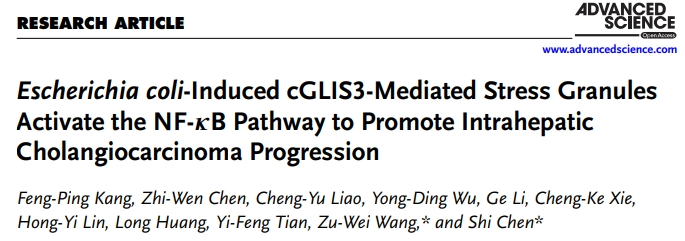
摘要
Patients with concurrent intrahepatic cholangiocarcinoma (ICC) and hepatolithiasis generally have poor prognoses. Hepatolithiasis is once considered the primary cause of ICC, although recent insights indicate that bacteria in the occurrence of hepatolithiasis can promote the progression of ICC. By constructing in vitro and in vivo ICC models and patient-derived organoids (PDOs), it is shown that Escherichia coli induces the production of a novel RNA, circGLIS3 (cGLIS3), which promotes tumor growth. cGLIS3 binds to hnRNPA1 and G3BP1, resulting in the assembly of stress granules (SGs) and suppression of hnRNPA1 and G3BP1 ubiquitination. Consequently, the IKKα mRNA is blocked in SGs, decreasing the production of IKKα and activating the NF-κB pathway, which finally results in chemoresistance and produces metastatic phenotypes of ICC. This study shows that a combination of Icaritin (ICA) and gemcitabine plus cisplatin (GP) chemotherapy can be a promising treatment strategy for ICC.
合作部分结果
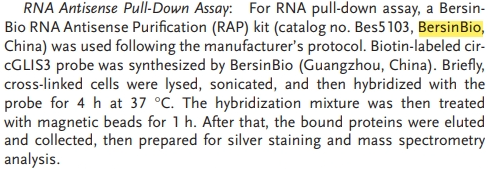
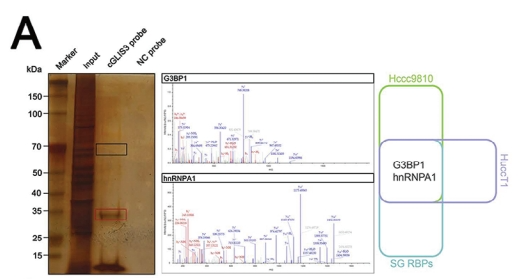
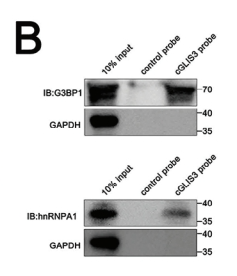
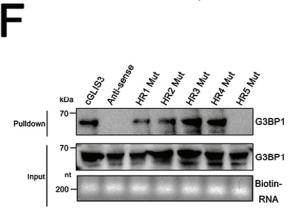
伯信合作技术:RAP




